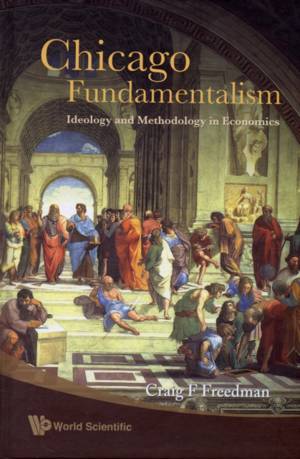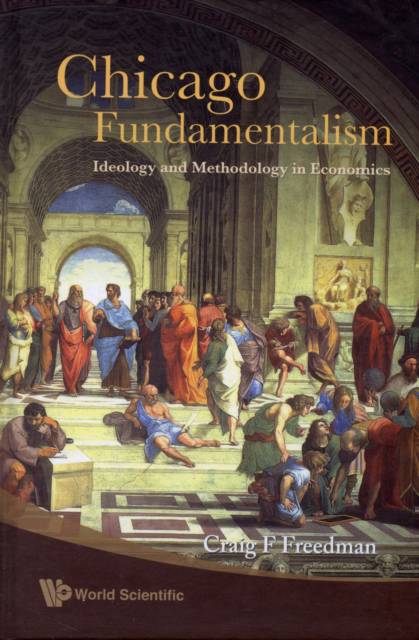
Je cadeautjes zeker op tijd in huis hebben voor de feestdagen? Kom langs in onze winkels en vind het perfecte geschenk!
- Afhalen na 1 uur in een winkel met voorraad
- Gratis thuislevering in België vanaf € 30
- Ruim aanbod met 7 miljoen producten
Je cadeautjes zeker op tijd in huis hebben voor de feestdagen? Kom langs in onze winkels en vind het perfecte geschenk!
- Afhalen na 1 uur in een winkel met voorraad
- Gratis thuislevering in België vanaf € 30
- Ruim aanbod met 7 miljoen producten
Zoeken
€ 258,45
+ 516 punten
Omschrijving
Cold-war ideology infected the development of economics in ways its practitioners were often not fully aware. The Chicago counter-revolution against the dominant post-war triumph of Keynesian analysis had an essential subtext, a perceived struggle between freedom and collective slavery. Ideological objectives subsequently influenced methodological concerns, pushing economists to adopt the zero-sum tactics of the courtroom rather than the mutually beneficial manners of the senior common room. In these ideologically charged times, economists stopped reading opposing views carefully, seeking instead to dismiss, out of hand, uncongenial ideas.In this collection of previously published and new material, Craig Freedman examines the problem of ideology through the reflection cast by the architects of the Chicago counter-revolution, George Stigler and Milton Friedman. The second half of the volume demonstrates the legacy of these ideological fires, namely a profession where the methodology of careless reading and zero-sum exchanges have persisted and come to dominate.
Specificaties
Betrokkenen
- Auteur(s):
- Uitgeverij:
Inhoud
- Aantal bladzijden:
- 472
- Taal:
- Engels
Eigenschappen
- Productcode (EAN):
- 9789812811998
- Verschijningsdatum:
- 1/07/2008
- Uitvoering:
- Hardcover
- Formaat:
- Genaaid
- Afmetingen:
- 157 mm x 226 mm
- Gewicht:
- 816 g

Alleen bij Standaard Boekhandel
+ 516 punten op je klantenkaart van Standaard Boekhandel
Beoordelingen
We publiceren alleen reviews die voldoen aan de voorwaarden voor reviews. Bekijk onze voorwaarden voor reviews.









